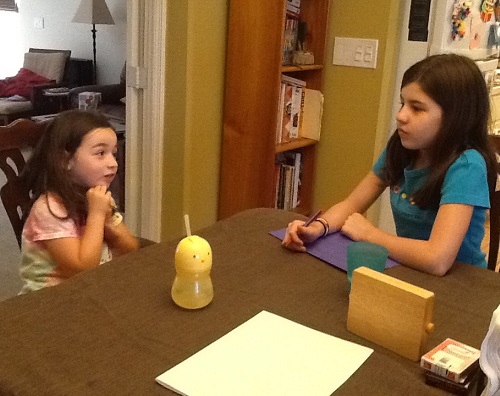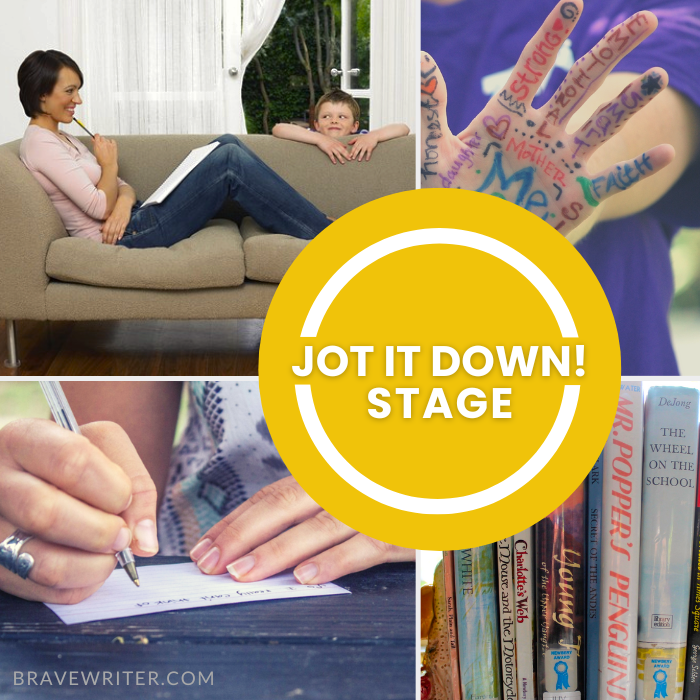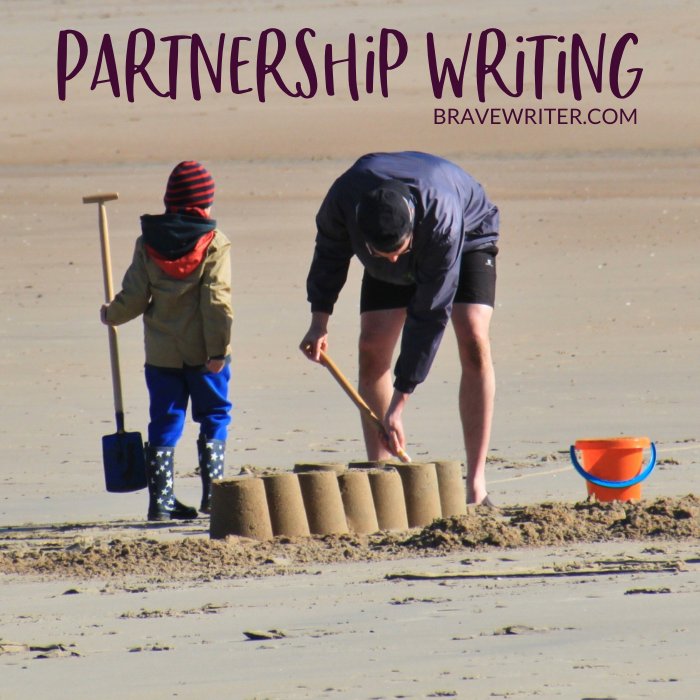
What is Partnership Writing?
Partnership Writing is the most overlooked stage of writing development. It is a writing-revising-editing partnership between a young writer and a writing coach (YOU!). It’s the stage where parent and child write together, with the parent providing the much-needed support to get those precious, quirky insights to the page.
Is my child in the Partnership Writing stage?
Your child:
- can write a sentence or a few words at a time but tires easily.
- needs help with spelling, punctuation, and getting rich vocabulary to the page.
- shows interest in using a pencil or keyboard but is not ready to “go it alone.”
- needs modeling for how to take thoughts and put them in writing.
In other words, your child wants to share thoughts and ideas through writing but original writing does not reflect the mind-life or verbal fluency. This is often seen in nine and ten year olds but don’t be governed by age range. Focus instead on the description and match it to your child.
My child is in the Partnership Writing stage. Now what?
1) Read the blog post, “The misunderstood ‘child-led learning’ model”
2) Listen to the Partnership Writing Podcast
3) See Partnership Writing in action
- Who, What, Where, When, and Why Project
- Crossword Writing Activity
- Cinderella Lap Book
- Keen Observation
- Movie Inspired
4) Check out Brave Writer products and online classes for additional help such as our Partnership Writing Home Study Course:
A Year-Long Language Arts Plan!
9-10 year olds (age range is approximate)
- Developmentally appropriate projects.
- Step-by-step instructions.
- A weekly and monthly plan.
Partnership Writing is the product that gives you a practical routine (think, schedule ala Brave Writer).
If your child isn’t in the Partnership Writing stage,
here’s a helpful guide for all the stages.

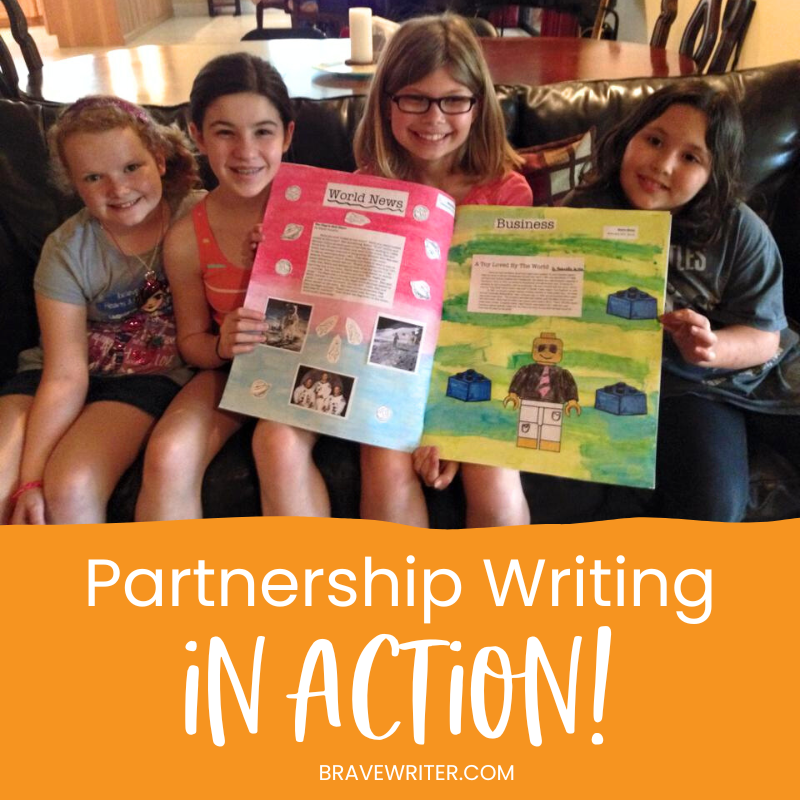
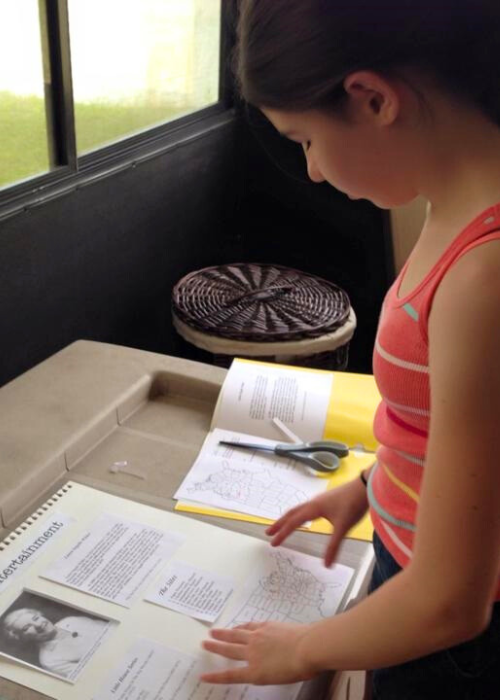 So far, all the kids have worked on the same projects every month (each with their own topics, styles, etc.). We’ve also discussed doing “open mic” so the kids can share any other writing they’ve been doing, but we tweak and learn as we go.
So far, all the kids have worked on the same projects every month (each with their own topics, styles, etc.). We’ve also discussed doing “open mic” so the kids can share any other writing they’ve been doing, but we tweak and learn as we go.
